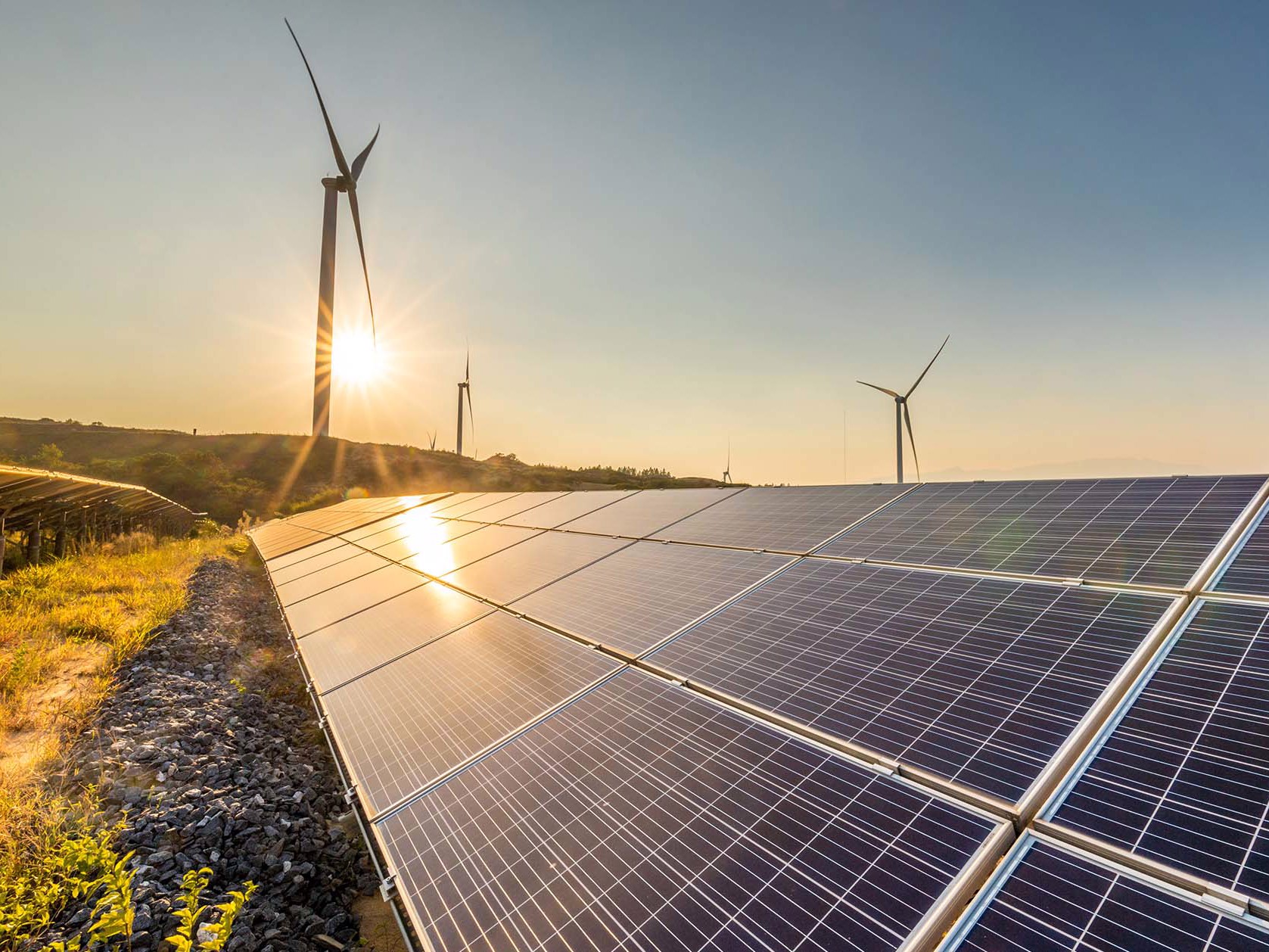Traditionally, the solar market in New Zealand has been small – providing only 0.5% of New Zealand’s electricity generation in 2021 [1]. However, recent cost improvements have seen solar energy become the fastest growing generation source of all renewable technologies in the world [2]. The recent influx of green capital into New Zealand has largely followed this trend and we expect this to continue.
This article highlights key considerations for new entrants looking to enter into an EPC Contract in the New Zealand solar market. If you are interested in a more general overview of the New Zealand renewable energy market, our Investing in New Zealand’s Renewable Energy Sector Guide is available here.
Development contracts in the New Zealand solar market
Solar projects are typically procured on the basis of an EPC contracting model (in large part due to the “bankability” of this model). However, EPC contracts are not common in the domestic construction industry – there is no market ‘standard’ form in New Zealand. Consequently, in New Zealand the solar EPC contracts are either based on the FIDIC suite, or bespoke agreements used by private developers in other jurisdictions. Aspects of the typical risk profile under an EPC contract are often not appropriate for New Zealand market conditions. For example:
- We are increasingly seeing key solar components being designated as free issue items. The interface between free issue items and the remaining works is always a hotly negotiated issue, and the New Zealand market is no different. However, the geographical distance of New Zealand from the solar supplier market, and the different legal jurisdictions in play are both factors to consider in deciding an appropriate risk allocation for defects in, or performance risk of, the free issue materials.
- There is an emerging trend for principals to engage the intended EPC contractor to undertake early works either before entering the EPC contract or before notice to proceed with the entire project is given. Usually, this is to enable international contractors to undertake geotechnical investigations and better price the ground risk. Most EPC forms do not reflect this arrangement and will require amendment.
- The risk profile agreed under an EPC contract is generally not appropriate for passing down to the domestic subcontractor market. This is in large part because New Zealand subcontractors do not have the balance sheet to support the transfer of risk that is common in bespoke EPC contracts.
In addition, international forms of contract are not tailored to integrate with the New Zealand regulatory landscape. This article discusses three key aspects for international entrants to the New Zealand solar development market to consider prior to contracting.
Three key considerations when contracting in New Zealand
1. Connection requirements and grid access
Generating assets can either be connected to the national grid (requiring a connection agreement with Transpower), or directly to the local distribution network (known as distributed generation). Solar projects tend to feed into the local distribution network. This is primarily because:
- there is currently a relatively long waiting list to connect new generating assets to the national grid; and
- the expense of the infrastructure required for national transmission can be economically unfeasible for the project (depending on its proposed capacity).
Questions that the parties to the proposed EPC contract will want to understand include:
- is the project connecting to the national grid, or a local distribution network?
- as between the developer and the contractor, which party is responsible for the connection works and how will those works be coordinated with the remainder of the project?
- will there be any other interfacing works (such as the construction of a transmission line)?
- what are the commissioning and testing requirements (both from a regulatory perspective and for performance testing)?
2. Health and Safety
The importance of giving proper attention to health and safety cannot be understated. The workplace health and safety regime in New Zealand is set out in the Health and Safety at Work Act 2015 (HSWA). There is very little public tolerance for organisations that fail to meet their obligations under the HSWA, particularly in the construction sector.
International entrants to the market need to understand the requirements of the HSWA before getting involved in construction projects in New Zealand. In particular:
- The HSWA introduces the concept of a “PCBU” (person conducting business or undertaking). In general terms, PCBUs have ongoing positive obligations to take reasonably practicable steps to ensure the health and safety of people. There can be multiple PCBUs on the same project (e.g., the principal and the EPC contractor), and these PCBUs must consult, co-operate and coordinate with each other to ensure workplace health and safety. The health and safety provisions of the EPC contract should reflect these concepts and obligations.
- Directors of PCBUs have specific obligations in relation to health and safety under the HSWA. This is important as overseas directors of New Zealand companies (both principals and contractors) must still exercise due diligence to ensure that the PCBU complies with its duties while completing projects occurring in New Zealand.
- There are also duties on “upstream” PCBUs (such as designers) to create designs that will reduce the risk to the safety of clients, builders and users. This is important in the EPC context – although the contractor assumes the role of both designer and contractor, it has separate positive obligations to mitigate safety risks in relation to both the design and the construction of the solar farm.
- International entrants to the New Zealand market should also note that the requirements of the HSWA cannot be contracted out of, and that it is unlawful to hold insurance that indemnifies a person for fines or infringement fees that arise under the HSWA.
For a more detailed overview of the HSWA, please see our Health and Safety Toolkit, compiled to assist organisations in keeping workers and others safe. Should you have any questions about your health and safety obligations, our specialist team has experience across a broad range of health and safety matters and is able to assist you.
3. The Construction Contracts Act 2002 and Disputes
It is important to be aware of the Construction Contracts Act 2002 (the CCA), which provides for mandatory retention, payment and dispute regimes that govern all construction contracts in New Zealand. These legislative systems sit alongside (and in addition to) the terms of the EPC Contract and cannot be contracted out of:
- Retention monies: Rules apply where principals are entitled to withhold a certain percentage of the amount owing to the contractor until completion, as a form of performance security. In general, the regime is similar to that seen in other jurisdictions – however, from October 2023, there are new rules regarding the manner in which these funds are held, and ongoing reporting requirements that the principal must comply with (more information is available here).
- Payment: The CCA is intended to facilitate cashflow in the construction industry, expressly banning “pay when paid” provisions. This is reflected in the payment regime. If a payment claim is made under the CCA, the principal must respond with a payment schedule within the required time period, which sets out the amount that shall be paid (and reasons for any difference in the claimed and scheduled amounts). If a payment schedule is not provided within the relevant timeframe, the amount claimed becomes a debt due at law.
Despite best intentions, disputes are common in the industry and are often technically complex. Key points for parties entering the New Zealand market to consider include:
- Adjudication of disputes is common, and new entrants should take note of the very limited timeframes for providing a response to a claim. However, the ordinary statutory right to refer disputes to adjudication is subject to the consent of both parties in situations where international arbitration would apply.
- Arbitration clauses are standard in New Zealand construction contracts due to the confidentiality and relative speed of the process compared to court proceedings. Arbitrations are generally governed by the default rules set out in the Arbitration Act 1996, which incorporates the UNICITRAL Model Law. It is uncommon to see other arbitral rules (such as the ICC rules) prescribed in New Zealand.
- Resolution of disputes by expert determination is not common in New Zealand, but for technical disputes there is a case for considering this due to the complex and specialised issues involved. However, identifying an appropriate expert or referral body is critical.
If you need help adapting an existing form of contract for a local solar project or require assistance understanding the obligations that will apply to you in New Zealand, talk to one of our experts.
Footnotes:
[1] https://www.mbie.govt.nz/dmsdocument/23550-energy-in-new-zealand-2022-pdf
[2] https://www.iea.org/energy-system/renewables/solar-pv








